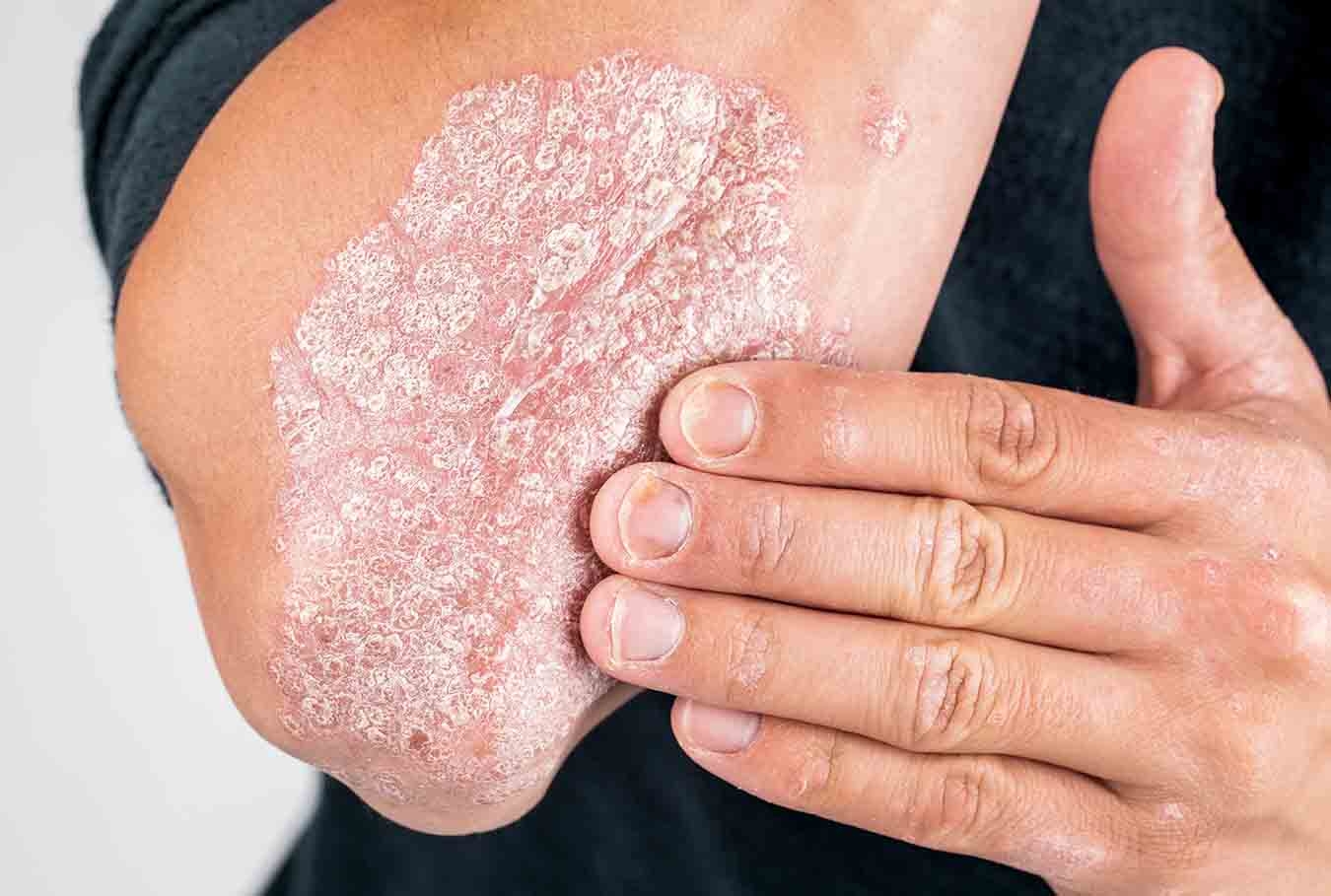
Hi
I am Dr Surej, an Ayurvedic physician with MD, practicing at Ayur Bethaniya.
Have you ever noticed how your skin reacts to what you eat? That greasy takeout or bag of chips might leave you feeling sluggish, but it can also show up in the form of breakouts or irritation. It turns out, the connection between your gut and your skin goes deeper than just greasy treats.
There's a growing body of research exploring the link between gut health and chronic skin conditions like psoriasis. This goes beyond occasional flare-ups – some experts believe the root of psoriasis might lie within the digestive system, specifically in a condition called leaky gut. To put it simply, the colon, or gut, is where the skin issue truly begins. Let's delve deeper into how your gut health might be impacting your skin's health.
What is Psoriasis?
Psoriasis is a chronic autoimmune condition primarily affecting the skin. This skin condition causes rashes with areas of itching and scaling skin. This common, prolonged (chronic) illness might flare up every few weeks or months before temporarily decreasing. It usually has no cure. The best course of action is to try to change coping mechanisms and lifestyle choices in order to manage psoriasis more effectively.
How does Ayurveda explain psoriasis?
Ayurveda includes psoriasis under the “Kushtha” spectrum of diseases. Kushatha is a broad term used to indicate a condition affecting the skin.
It is a condition that is generally said to be “Asadhya” i.e. incurable or “kruchrasadhya” i.e. difficulty to cure.
According to ayurveda psoriasis is a condition where there is an imbalance of mainly the ‘Vata’ and ‘Kapha’ dosha.
Vata, which governs physiological processes, may be partly to blame for psoriasis's dryness and scaling of the skin. Since Kapha is the dosha associated with growth, Ayurvedic practitioners use this dosha to explain the itching and quick turnover of skin cells.
Read to know: Ways to Reduce Your Risk of Stroke
How Does Ayurveda Approach Psoriasis?
Ayurvedic treatment for psoriasis Unlike a permanent cure, Ayurveda focuses on managing symptoms and achieving long-term remission through a multi-pronged approach. It primarily aims to purify the body, especially the blood and tissues. Toxins are eliminated from the body with the help of panchakarma therapies and digestion is reestablished to stop additional buildup. This is usually followed by the dietary modifications since it plays a crucial part of Ayurvedic psoriasis management. Dietary changes may emphasize eating foods that pacify the imbalanced doshas. In the case of psoriasis, this often means a diet rich in green leafy vegetables, whole grains, and legumes, which are believed to promote Kapha balance. Foods that are seen as aggravating Kapha, such as yogurt, seafood, salty foods, and spicy foods, are often advised to be avoided. Apart from diet, herbs, and decoctions that promote healing and reduce inflammation are employed along with herbal oil or paste that are applied to the skin to help it heal completely by toning and strengthening the tissues.
Lifestyle changes are one of the key factors that play a role in the management of psoriasis Stress management is a key aspect of Ayurvedic treatment for psoriasis, as stress is considered a trigger for flare-ups. Ayurvedic practices like yoga, meditation, and pranayama can all help manage stress and promote overall well-being. Getting enough sleep and regular exercise are also important for healthy skin and overall health.
Psoriasis is treated using pure herbs, unadulterated oils, and natural elements measured and combined perfectly in Ayurvedic medicine. The adverse effects of Ayurvedic treatments for psoriasis are nonexistent because the components are organic.
Ayurvedic remedies for psoriasis not only eliminate the disease from its source but also facilitate the healing of other deep-seated injuries within your body.
What to Expect from the Treatment?
- Major reduction in scaling and irritation.
- Very little possibility of recurrence.
- Lasting outcomes.
- Strengthens immunity.
Talk To The Doctor
Another option for you if you're interested in holistic health could be Ayurvedic therapies. However, you shouldn't use them in place of conventional medical care. For a diagnosis, it's crucial to see a physician if you think you may have psoriasis.
If you have psoriasis and believe Ayurveda may assist, consult with both your doctor and a qualified practitioner. The relationship between the mind and body appears to be important for general well-being.
Ayur Bethaniya: For Ayurvedic Treatment Of Psoriasis
At the Ayur Bethaniya Ayurveda Hospital, we base our treatment recommendations on identifying the root cause of the symptoms connected to the skin issue. Knowing what caused them helps the physician rule out additional issues related to the symptoms.
We create a personalized therapy plan for every patient, utilizing deep-layer tissue regeneration and blood purification as treatment modalities. Restoring the digestive function and eliminating the toxins stop more toxins from building up. This is accomplished by combining snehapana, herbal oils, and decoctions of herbs that lessen symptoms and purify the body.
Internal medicine treatment avoids the buildup of toxins in the body, while the application of herbal packs and oils to the skin eliminates red and itchy skin patches from the affected area. To encourage full skin healing, the treatment strategy works to tone and strengthen the tissues.
Feel free to contact us for your queries.
Read to know: RELIEVING BACK PAIN: AN AYURVEDIC APPROACH TO SLIPPED DISCS